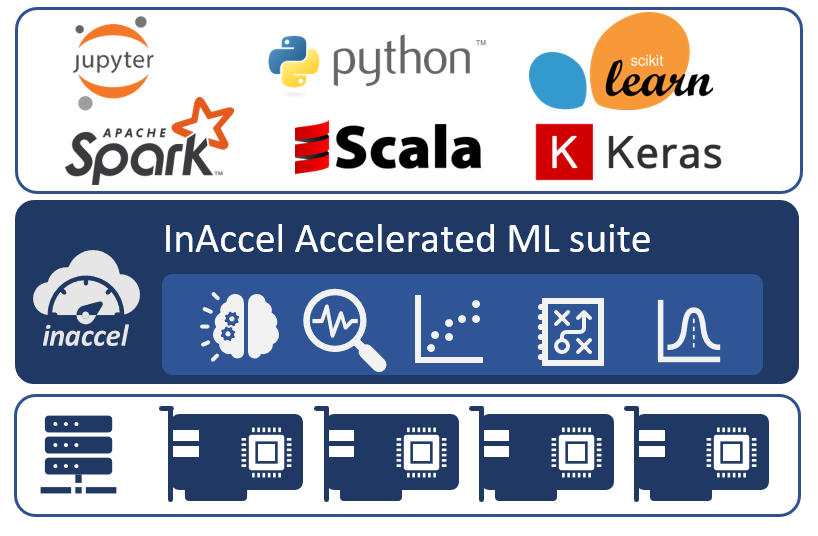Data scientists and ML engineers can now speedup their applications from their browser using the power of FPGAs.
ML developers can now run up to 15x faster their applications on Jupyter notebooks from their browser with zero code changes. ML developers are welcome to evaluate their applications for free on the new InAccel portal.
InAccel, a pioneer in making FPGAs accessible and scalable, is providing the benefits of FPGA acceleration and utilization from your browser using the familiar Jupyter platform.
https://inaccel.com/accelerated-data-science/

InAccel provides an FPGA resource manager that allows the instant deployment, scaling and sharing of FPGAs making easier than ever the utilization of FPGAs for applications like machine learning, data processing, data analytics and many more HPC workloads. Users can deploy their application from Python, Keras, Jupyter notebooks or even terminals.
Through the JupyterHub integration, users can now enjoy all the benefits that JupyterHub provide such as easy access to computational environment for instant execution of Jupyter notebooks. At the same time, users can now enjoy the benefits of FPGAs such as lower-latency, lower execution time and much higher performance without any prior-knowledge of FPGAs.
InAccel’s framework allows the use of Xilinx’s Vitis Open-Source optimized libraries or 3rd party IP cores (for machine learning, data analytics, genomics, compression, encryption and computer vision applications.)
Users can speedup applications like logistic regression, K-means clustering, XGBoost and Naive Bayes with zero code changes.
The Accelerated Machine Learning Platform provided by InAccel’s FPGA orchestrator can be used either on-prem (e.g. supporting Xilinx or Intel FPGAs) or on the cloud (i.e. aws). That way, users can enjoy the simplicity of the Jupyter notebooks and at the same time experience significant speedups on their applications.
Users can test for free the available libraries on the InAccel cluster on the following link:

